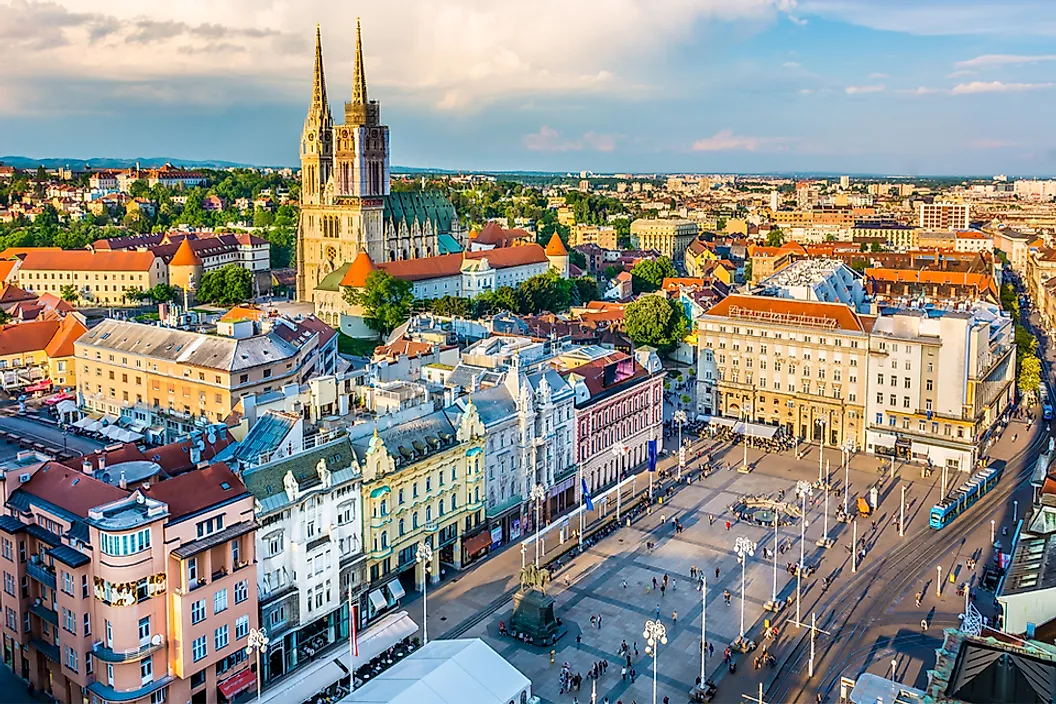When Did Croatia Become a Country?

The Republic of Croatia gained independence from the Socialist Federal Republic of Yugoslavia in 1991. Located at the crossroads of Southern and Central Europe, Croatia is a unitary parliamentary constitutional republic, with the president and prime minister as the head of state and head of government, respectively. Croatia has an area of 21,851 square miles and a population of 4.28 million. The country’s first settlement was established in the sixth century, followed by the medieval Croatian duchy establishment in the seventh century. In 925, Croatia became a kingdom, and later united with Hungary in 1102. In 1527, Croatia joined the Habsburg Monarchy until 1918, when it seceded from Austria-Hungary following the creation of Yugoslavia.
Independence of Croatia
In 1990, the Socialist Republic of Croatia initiated the political and constitutional transformation that culminated in the creation of the Republic of Croatia. The country proclaimed the Christmas Constitution after successfully holding an independence referendum in 1991. On June 25, 1991, Croatia declared independence and dissolved its association with the Socialist Federalist Republic of Yugoslavia (SFR Yugoslavia). Soon after the declaration, the Croatian War of Independence started. The European Economic Community (EEC) and United Nations (UN) formally recognized Croatia in January 1992. After the war ended in 1995, Croatia embarked on reconstruction and democratization processes, as well as socio-economic development, refugee settlement, and advancing human rights issues. By the year 2000, Croatia experienced the same challenges as many developing states, like political corruption and high unemployment, but the country grew steadily. Between 2000 and 2011, the country’s constitution adopted unicameralism and reduced presidential powers following a referendum. Croatia joined the North Atlantic Treaty Organization (NATO) on April 1, 2009, and the European Union (EU) on July 1, 2013.
Croatian Political System
Croatia is a unitary state under a parliamentary governance system. The government has three arms, namely the legislature, executive, and judiciary. The president is the head of state, who serves for a maximum of two terms of five years each. Croatian parliament nominates a prime minister and forwards the name to the president for appointment as the head of government. At any time, the Croatian parliament has between 100 to 160 representatives elected through popular vote, and they serve four-year terms. The leading political parties are currently the Croatian Democratic Union and the Social Democratic Party of Croatia. The country also has a civil law that largely borrows from German and Austrian legal systems. Internationally, Croatia is considered a middle power and has direct diplomatic relations with 181 countries, 51 embassies, 24 consulates, and eight diplomatic missions globally. Similarly, 69 consulates and 52 embassies of foreign nations operate within Croatia.
Economy
The UN classifies Croatia as a high-income economy, whereas other bodies projected its nominal GDP to be approximately 53.5 billion in 2017. By January 2017, an average Croatian employee earned a monthly net salary of 5,895 HRK (Croatian kuna) and the unemployment rate was 15.3%. Between 2010 and 2017, the service sector dominated the economy and employed over 64% of the workforce, mainly within the tourism sub-sector. Croatia’s main export partner is the EU bloc, which accounts for more than half of all its exports.
Demographics
The official language of Croatia is Croatian, however, different local government offices usually use minority languages like Czech, Hungarian, Italian, Ruthenian, Serbian, and Slovak. In 2016, Croatia had a population of 4.19 million people and its population density ranked 125th in the world. The life expectancy at birth stood at 78.20 years in 2016, whereas the death rate exceeds the birth rate to date. Accordingly, the Croatian government was concerned that the population could shrink to 3.1 million by 2015 if the birth to death ratio remained the same. Croats make up the majority (90.4%) of Croatia's population, while minority groups include Serbs (4.4%), Hungarians, Germans, Bosniaks, Italians, Slovenes, and Czechs. Although the country has no official religion, Christianity is the religion of the majority (Catholic (86.28%), while other religions include Eastern Orthodoxy (4.44%), and Protestant (0.34%), and Islam (1.47%).











